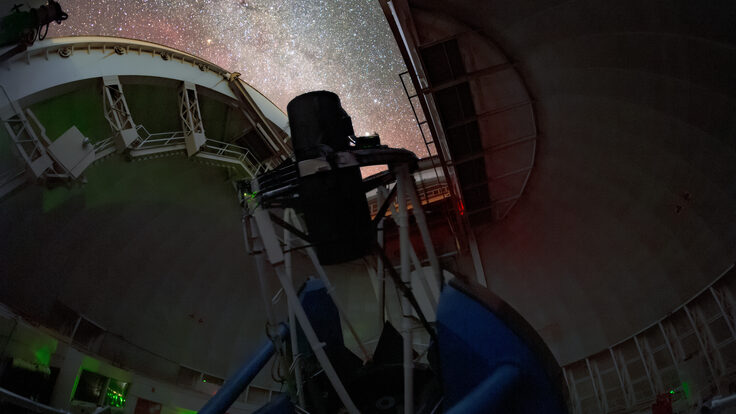 |
| Photo courtesy of Alexandre Telnov |
Russian quiz champ
What? An intellectual game show. Where? Based in Russia and played all around the world. When? Since 1986.
The show, What? Where? When? challenges a team of six to solve riddles and puzzles, using common knowledge and logic, in 60-second brainstorming sessions. The questions are submitted by members of a TV audience that numbers in the tens of millions. In addition, a competitive version is played by more than 5000 ranked teams throughout the world.
For the past two years, Princeton University particle physicist Alexandre Telnov has been one of six players handpicked for the US national team that competes in the world championship, known as the Nations Cup.
“One reason the show is so popular is because of the spirit of freedom that permeates the game,” says Telnov. It was the first live television program aired in the Soviet Union—no small feat in a country that, at the time, had government controlled broadcasts and only two national TV channels.
Telnov recalls that when he was about 11, the show estimated the size of its Moscow audience by asking people to briefly turn off their TV sets. This decreased the load on the electrical system and sped up the turbines in the power plants; based on the resulting change in the frequency of the current, it was determined that 42.7 percent of households were tuned in.
“The questions really cover the entire spectrum of human knowledge, except they do not require anything that only a specialist would know,” Telnov says. For that reason, it’s important to have people with diverse backgrounds and expertise on a team. His includes an accelerator physicist with a background in electrical engineering; a woman with an MBA from the University of Chicago; two computer scientists; and a retired Russian language professor.
The Nations Cup is a weeklong extravaganza that attracts more television cameras than teams; competitors become local celebrities. Telnov declined an invitation to join this year’s US team, which will compete in Azerbaijan; however, his Silicon Valley-based team, the reigning US champion, will compete in a separate international championship in Russia.
“It’s not, by any means, a major part of my life—not my reason for living,” says Telnov. More important, he says, are his soon-to-be-published work on charge-parity violation and his participation on the executive committee of the Stanford Linear Accelerator Center Users’ Organization, for which he lobbies in Washington, DC.
Telnov says he does appreciate the time he has spent playing What? Where? When?, both for the fun of it and for the way it has sharpened his problem-solving skills. “Gaining experience working in a team of six, brainstorming solutions in less than 60 seconds, has great real-world applications,” he says.
More information is at http://en.wikipedia.org/wiki/What_Where_When.
Ken Kingery
Click here to download the pdf version of this article.






